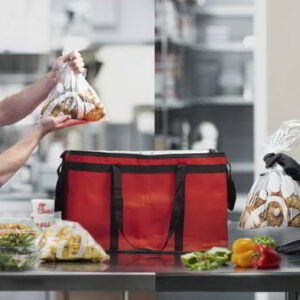ATLANTA —Chick-fil-A, Inc. announced that the Chick-fil-A Shared Table® food donation program has provided over 30 million meals to local communities in need across the United States and Canada, while also helping the company surpass its 2025 corporate social responsibility goal to divert 25 million pounds of food waste from landfills one year ahead of schedule. This significant achievement underscores the company’s commitment to fighting hunger and food insecurity while also demonstrating environmental stewardship.

Feeding America® estimates that 44 million Americans, including 13 million children, are food insecure – lacking access to sufficient food or food of adequate quality to meet one’s basic needs. Chick-fil-A Shared Table empowers local Chick-fil-A® Owner-Operators to address this issue through donating surplus food from their Restaurants to local community partners to help people facing hunger. Chick-fil-A, Inc. works with Food Donation Connection and Second Harvest to connect local Owner-Operators with these organizations, and more than 2,200 Restaurants participate in the program.
Since 2012, shelters, meal programs and other organizations have transformed donated surplus food items – like chicken, fruit, biscuits, salads and more – into meals for those affected by food insecurity. Repurposing extra food that would otherwise go to waste helps Chick-fil-A reduce its environmental footprint while making a meaningful impact in addressing hunger and food insecurity within local communities.
“The heart of the Chick-fil-A Shared Table program lies with our local Restaurant Owner-Operators and the unique partnerships they develop with nonprofits in their communities to feed people in need,” said Andrew T. Cathy, CEO of Chick-fil-A, Inc. “Like so many of the best ideas at Chick-fil-A, Shared Table began in our Operator community, and today, many of our Chick-fil-A local Owner-Operators choose to participate out of a genuine desire to make a positive impact in the communities they serve. That’s what makes the program so successful.”
By the Numbers:
- 38.6+ million pounds of food waste diverted from landfills by Chick-fil-A, Inc. and Chick-fil-A restaurants since 2020
- 2,200 Chick-fil-A restaurants participating in the Chick-fil-A Shared Table program
- 30 million meals created for individuals in need through the Chick-fil-A Shared Table program since 2012
- 1,200+ nonprofit organizations across the U.S. and Canada engaged in the Chick-fil-A Shared Table program
- 44 million Americans – including 13 million children – are food insecure (Source: Feeding America)
- 15.9% of households in Canada – equating to approximately 5.8 million people – lack adequate access to food (Source: Canadian Public Health Organization)
- 160 billion pounds of food is estimated to be wasted each year in the U.S. alone (Source: ReFED)
“Donating extra food from Chick-fil-A restaurants to help those in need is not only the right thing to do, but an incredible opportunity for us as a restaurant company to impact our local communities,” said Matt DeMichele-Rigoni, local Owner-Operator of Chick-fil-A Copley Square in Boston. “Addressing hunger and food insecurity in our local neighborhoods is one of the best ways that Chick-fil-A can show care for others throughout the communities we serve.”
To further the company’s commitment to fighting hunger and reducing food insecurity, Chick-fil-A, Inc. donates $25,000 to Feeding America or Second Harvest in Canada, with the aim of funds being distributed to partners within the restaurant’s community to create positive local impact.
Additional sustainability efforts – such as composting and utilizing aerobic food digesters – have also played a role in maximizing the effectiveness of the brand’s food waste diversion efforts. Earlier this year, in an effort to further advance its care for the planet, Chick-fil-A, Inc. joined the U.S. Food Waste Pact, signing a national voluntary agreement to help food businesses accelerate progress toward their waste reduction targets. Chick-fil-A, Inc. continues its commitment to environmental stewardship and its leadership in the quick-service restaurant industry.
For more information about Chick-fil-A, Inc.’s corporate social responsibility programs and sustainability initiatives, please visit Chick-fil-A.com/CSR.
About Chick-fil-A, Inc.
Chick-fil-A, Inc. is the third largest quick-service restaurant company in the United States, known for its freshly-prepared food, signature hospitality and unique franchise model. More than 200,000 Team Members are employed by independent owner-operators in more than 3,000 restaurants across the United States, Canada, and Puerto Rico. In 2023, the company shared plans to expand by 2030 into Europe and Asia.
Chick-fil-A owner-operators live and work in the communities their restaurants serve, each supporting local efforts to address hunger, education, and making a positive impact. The family-owned and privately held company was founded in 1967 by S. Truett Cathy. More information on Chick-fil-A is available at www.chick-fil-a.com and @ChickfilANews.
Read more on Non-Profit Organizations and Humanitarian Services on Missions Box.




